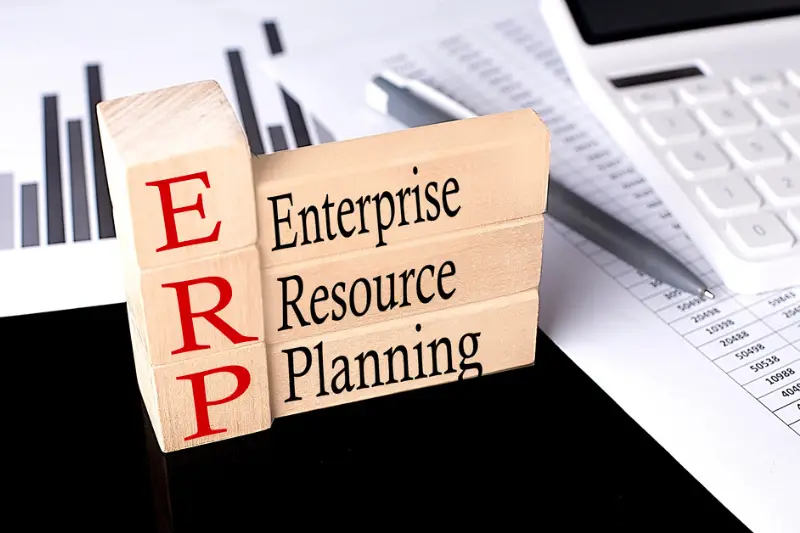Click here to get this post in PDF

To grow your business sustainably, you need to cut off all the paper-heavy and manual works. Instead, find an enterprise resource planning system where you can organize critical business data and help the organization operate efficiently, even when it expands.
But What is ERP and what business models, or industries can implement this ERP system for their business? Let’s find out more in this article.
What is ERP?
Enterprise resource planning (ERP) is a system of integrated software features that are used by companies to manage and streamline all important parts of their businesses. It automatically integrates business processes across human resources, accounting, procurement, distribution, sales activities, and other procedures. Typically, ERP systems operate on a unified software platform using the same data definitions running on single data storage.
Enterprise resource planning software was initially designed for manufacturing and retail companies but has eventually opened to financial services, professional services, higher education, health care, and even government. Each industry has its unique ERP functions to fit with the business model. For example, government ERP transforms into a contract lifecycle management (CLM) rather than traditional procurement and also follows government accounting rules.
The state of the ERP market
ERP deployment is diverse across business industry models, according to the Panorama Consulting 2018 ERP report. Manufacturing still holds the major share of the current market at 43%. As we mentioned before, ERP systems were originally tailored to fit manufacturing and supply chain processes.
Here is the complete overview of ERP adoption by industry models:
- Manufacturing – 43%
- Retail & Distribution – 11%
- Finance, Insurance & Realty – 11%
- Information Technology – 10%
- Professional Services – 6%
- Non-Profit – 5%
- Construction – 3%
- Healthcare – 3%
- Education – 3%
- Other – 3%
- Telecommunications – 2%
According to Fior Markets, the worldwide market will reach $61.69 billion by 2025. That means the ERP adoption trend is still growing rapidly in the future.
5 Business Industries That Can Benefit from an ERP System
1. Manufacturing
Implementing a manufacturing ERP software system brings many business advantages. But it’s necessary to determine clearly where the most value and return on investment for your manufacturing organization when implementing an ERP system. Here are some key benefits of a manufacturing ERP system from a big picture point of view:
- Gain access to important information by utilizing a single business system for all operational and financial data
- Improve your supply chain by improving inventory visibility and providing warehouse and transportation management solutions
- Improve customer satisfaction by having a “single source of truth” for supply and demand information
- Empower a worldwide workforce while streamlining procedures across many locations
2. Retail & Distribution
One of the world’s fastest-growing business sectors that we need to mention here is retail. But along with its strong growth, it causes lots of problems in managing it. Normally, a retail business operation includes a series of sub-sectors and managing them efficiently is imperative to maintain or increase profits. Fortunately, ERP in the retail industry can be a perfect solution. The software enables you to manage all your organization’s data and resources with ease and automation. Here are the advantages of choosing a retail ERP for your business:
- Real-time information
- Better customer management
- Better employee management
- Accurate inventory management
- Streamlined point of sales system
- Smooth eCommerce integration
3. Finance, Insurance & Realty
Generally, the insurance or finance industry is known as a paper-heavy environment. There are many administrative tasks, contracts, accounting papers to handle. It means data accumulation can easily reach breaking point very fast.
The majority of large insurance and finance businesses have already used ERP systems to enhance productivity through more automated daily procedures. They’ve also discovered it to be a helpful management tool since it provides executives with a big-picture view of the business.
The advantages of the ERP system can vary among different insurance or finance companies, depending on each business model. But all the companies in these sectors using an ERP system witness an improvement in client service. It also helps reduce costs, support business growth, and accelerate innovation.
4. Information Technology
Just like in the consulting world, IT companies always need excellent resource planning to wield a workforce with sufficient expertise. Otherwise, it can result in low margins and failure to thrive in the long term.
Some of the pains that tech firms often share with their agency clients, such as high-pressure work with tight deadlines and the potential for changes in customers’ needs. All the more important is to keep a close eye on the trinity of timelines, budget, and margin.
ERP makes time planning and KPI tracking more efficient thanks to quick, easy resource planning to control your teams’ schedules and availability. It also simplified approval processes for purchases, expenses, invoices, and helped you see and take actions taken within the ERP system.
5. Professional Services
With ERP, professional service firms have a detailed view of resource availability. Combining that with project planning views, they can find opportunities to speed up service delivery and reduce bench time. Coupled with advanced historical project data, they can instantly know detailed budget and margin information on past projects, which will help them price correctly and maximize revenue per client and project.
Wrap up
ERP software has become a powerful tool for different types of businesses in recent years as it generates major time and cost savings. Besides automating business processes, an ERP system provides organization-wide visibility that helps executives and managers where their teams should focus on. This contributes to a hassle-free working process and delivers better results for customers.
You may also like: Top ERP Trends For 2021

